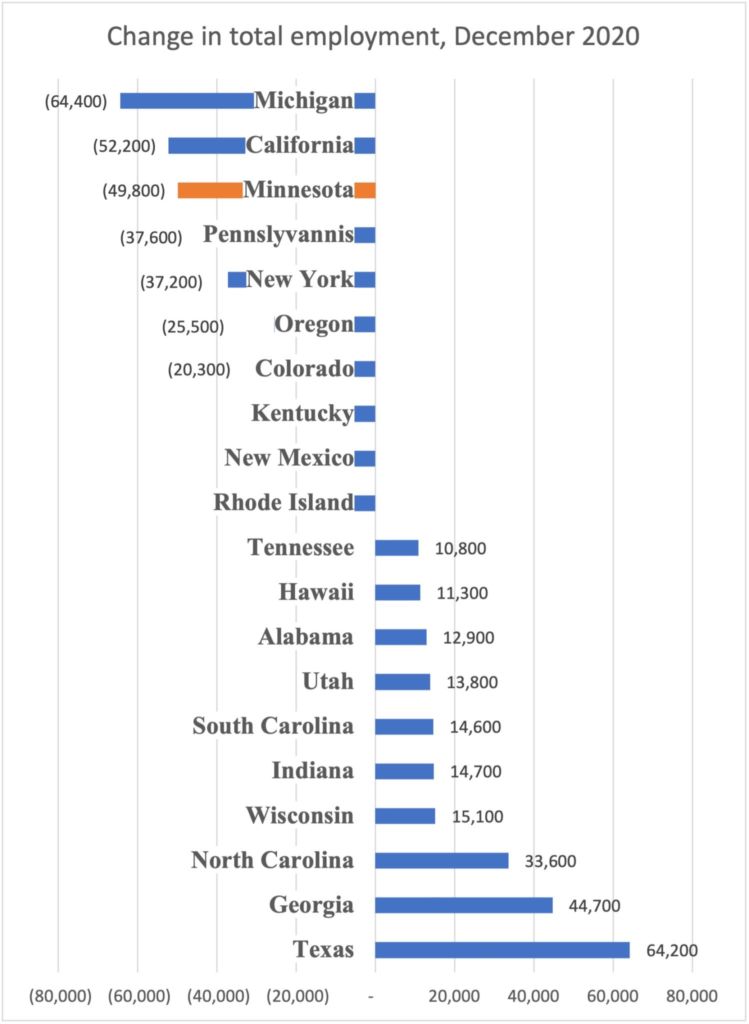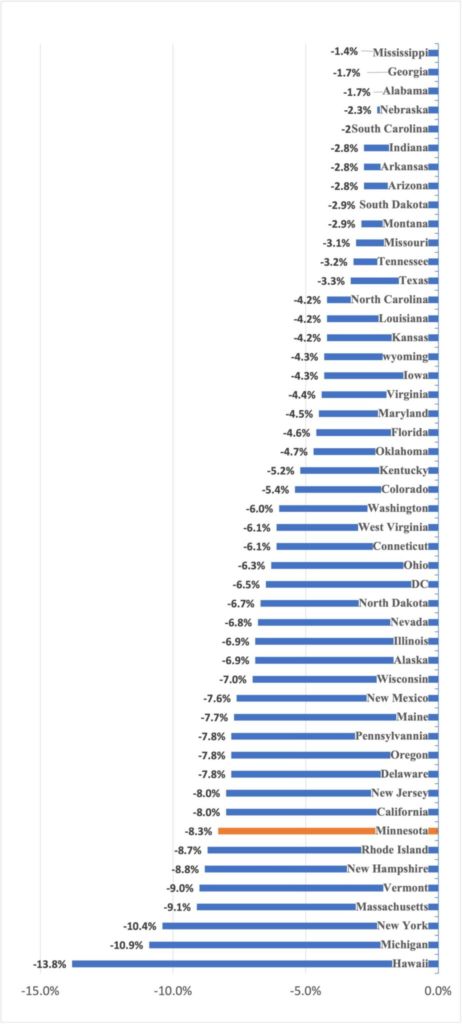Minnesota among top states with highest job losses in 2020
On Jan. 21, the Minnesota Department of Economic Development (DEED) published Minnesota’s employment numbers for December 2020. And according to the data provided, unemployment in December was down from November. Unfortunately, however, this was due to job losses and people leaving the workforce.
As explained by DEED,
The tenth of a percentage point tick down was due to people leaving the labor force, at least temporarily, and happened as Minnesota lost 49,800 jobs in December. The private sector lost 42,900 jobs in Minnesota in December, down 1.8% and Government lost 6,900 jobs, down 1.7%.
Additionally, over the year numbers also showed Minnesota had fewer jobs at the end of 2020 compared to the end of 2019.
Minnesota performed much worse compared to other states
It is quite unsurprising that a lot of states, including Minnesota, lost jobs in 2020. However, not all states performed the same. According to new BLS data, Minnesota was among the worst-performing states in the nation. In December, for instance, Minnesota had the third-highest number of job losses, only surpassed by Michigan and California.

Source: Bureau of Labor Statistics
Additionally, between 2019 and 2020, Minnesota lost 8.3 percent of its jobs, making it one of the top 10 states with the highest total annual job losses in 2020.
Source: Bureau of Labor Statistics
As most data shows, there is a clear relationship between economic performance and COVID-19 restrictions. In December, Minnesotans were limited to only take out. Additionally, other indoor activity establishments like gyms were closed. As a result, the leisure and hospitality industry experienced massive job losses. In fact, throughout the duration of the pandemic, Minnesota has had some of the most restrictive policies regarding COVID-19, hence our worse economic outcomes.
In the light of the new tax hike proposals, it is important to keep in mind that most of the economic devastation that followed low-income individuals and small businesses was due to the closing of the economy. There is, therefore, no rational justification for raising taxes on individuals and businesses in order to pay for the economic damage that occurred. This especially considering that the leisure and hospitality industry is still facing restrictions. Raising taxes is, additionally, the last thing Minnesota businesses need as they try to recover from this wreckage.